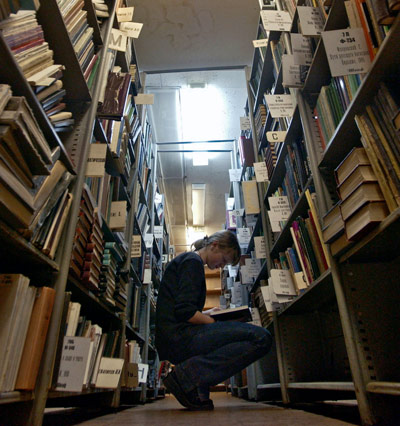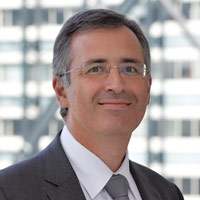How would you describe Russian higher education in the years immediately following the collapse of the Soviet Union?
SG: Russia emerged from the collapse of the USSR with a strong reputation for quality of education in mathematics and sciences. However, given seven decades of repression and ideological domination of social sciences, Russia had to rebuild education (and research) in social science pretty much from scratch. Modern economics education was especially important as Russia was undergoing unprecedented economic transformation; but political science and sociology were also key, as Russia was going through a major political and social transformation.
What challenges faced the New Economic School?
SG: By definition, new and private schools (such as New Economic School, European University at Saint Petersburg, and Moscow School for Social and Economic Studies–the so-called Shanin School) were better positioned to innovate and introduce new programs, bring in faculty trained abroad, and adopt new governance models. In many ways they succeeded, and the state schools–first and foremost, the newly established Higher School of Economics–followed suit, reproducing and scaling up whatever worked in the private schools. However, private schools naturally faced major difficulties in fundraising and in recruiting good students. Education is a conservative business; new schools do not have a track record of alumni successes. Also, neither private education nor fundraising existed in Russia at that point; so it took a lot of time and effort to convince the public that education and governance models promoted by the New Economic School and similar institutions were not only viable but also the only way forward for Russian education.

How did MacArthur's support make a difference?
SG: MacArthur was one of the first supporters of the New Economic School, helping to attract other major international foundations (such as Ford and Eurasia). MacArthur also made a major contribution to our first endowment campaign (alongside with Open Society and several Russian individuals and companies).
MacArthur also made a unique contribution by advancing the development office. MacArthur supported training of the top team (including myself) by professional fundraising consultants. This really enhanced our capacity to raise funds both within and outside Russia. People trained through this program later moved to other Russian universities delivering major positive spillovers to Russian academia at large.
I am especially grateful to MacArthur for continuing its support during the 2008-09 economic crisis, which was especially painful in Russia. The Foundation's President Jonathan Fanton told me then, "I believe that, during the crisis, foundations–despite the major hit to their own endowments–should give more rather than less, as grantees' needs are greater and private sector fundraising opportunities are more limited." I will always remember this.
How did the School's reputation change?
SG: Both funding and the accompanying conditionality (in terms of governance and quality standards) of MacArthur's support formed a quality stamp that helped to attract other donors (Western and Russian), as well as Western academics. Partnership with MacArthur has been a quintessential element of the School's success
Grantmaking in Russia was an integral part of MacArthur's international engagement. The Foundation launched the Initiative in the Independent States of the Former Soviet Union in 1991 to "contribute to the transition to a civil and democratic society and to the integration of that society into the global community." The Foundation opened an office in Moscow in 1992, staffed almost exclusively by Russians. Over the quarter-century of MacArthur's presence in Russia, the Foundation continuously adapted its program priorities in response to the changing needs of Russian civil society and the Foundation's own learning.
MacArthur's higher education grantmaking in Russia initially supported the European University at St. Petersburg, the New Economic School, and the Moscow School of Social and Economic Sciences. MacArthur expanded these efforts in 1997-1998 with the Foundation's participation in a science program, Basic Research and Higher Education in Russia (BRHE). BRHE established centers of excellence in the natural and physical sciences at Russian state universities. MacArthur would become the lead donor, working in close partnership with the Russian Ministry of Education and providing over $30 million to BRHE over the next 14 years.
MacArthur awarded 199 grants totaling $79.2 million to 86 organizations between 1992 and 2013 under the Higher Education Initiative in Russia. The New Economic School received six grants totaling $3.85 million.




